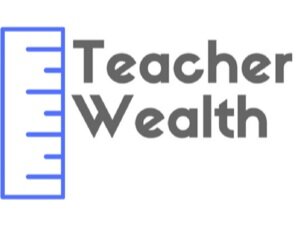What Private School Teachers Need to Know About Their Finances
As a financial planner that serves Iowa educators, I know that private school teachers often have unique financial challenges and opportunities that differ from those of their colleagues in public schools. In this blog post, I'll highlight some important financial considerations for those who work in a private school setting.
Lower Salary
As a teacher, you know that educators are underpaid. However, if you are a private school teacher, you are likely taking an additional hit in income compared to your public school counterparts. Private schools typically have fewer dollars to go around for the school’s largest line item - teachers and staff - because government dollars are not used to finance private schools.
Some states are beginning to change this (including Iowa) where voucher programs and educational savings accounts (ESAs) are becoming available. It will be interesting to see if this pay gap will close over time. I know the Catholic schools in the Des Moines area where I live have a goal to pay their teachers closer to what public school teachers earn.
Although important for most families, watching your pennies, having an effective budgeting process, and keeping large expense items under control can be even more important for educators of private schools.
No State Pension
Not only are you giving up income, but you also don’t have access to the greatest financial advantage that public school teachers have - the state pension plan (IPERS in Iowa).
However, it doesn’t mean that you can’t retire someday. It's important to make sure you are making up for this difference by saving for retirement through other means.
You will likely be offered a 403(b) plan which is just like a 401(k) plan that other employees in the private sector enjoy. Private schools are more likely to provide a match to the retirement plan which you should take advantage of but it will depend on the school and its funding whether this is offered.
There are other options like Roth IRAs which probably should have a place in your retirement savings arsenal as well. It is important to know the different options available and which ones should be taken advantage of first.
It is imperative that you are saving enough. Getting to a 15-20% savings rate is a good rule of thumb to try and achieve. And saving as early as you can is important because time is your best friend when it comes to retirement savings.
The best time to start saving is years ago. The second best time is today.
Less Generous Employee Benefits
It is not just the retirement plans. Although not always the case, public school employees are known to have very good health insurance programs. Especially with lower deductibles and what the plan covers. It is more of a mixed bag for private school employees.
Other important benefits like long-term disability, life insurance options, and vision/dental are often less adequate because of the lack of funding for these benefits.
Make sure you know what employee benefits are available to you. There are some benefits that you will want to get in the private market when your school doesn’t offer them.
You are eligible for student loan forgiveness
The best student loan forgiveness program (PSLF) is not only for public school educators even though it is called Public Service Loan Forgiveness. Any employee (not just teachers) that works for any 501c3 is also eligible. That means you as a teacher at a private school most likely are eligible.
The rules and opportunities surrounding forgiveness for student loans have been constantly changing lately so it is important to make sure you follow all of the correct steps. Making sure you are in the right type of loan (or consolidate into one) and a repayment plan that is eligible is most important. Reach out to Teacher Wealth if you need help with this.
No Union to Join
Because you are not a public school educator you are ineligible to join the NEA or ISEA.
Liability protection is a concern. Teachers put themselves at risk each day for lawsuits and getting sued just because of what the job entails. Protecting yourself is most important. Most teachers (in both public and private schools) are not properly covered with liability insurance. Make sure you take care of this.
There are options for private school teachers. A good one in Iowa is Professional Educators of Iowa (PEI).
While there are clear financial drawbacks to choosing a career working for a private school there are advantages as well. With proper foresight and planning, the financial obstacles can be overcome.
Thank you for choosing a career where you can change the world, and I hope this article has been helpful to you. If you have any questions or need further assistance, please don't hesitate to reach out to us.
